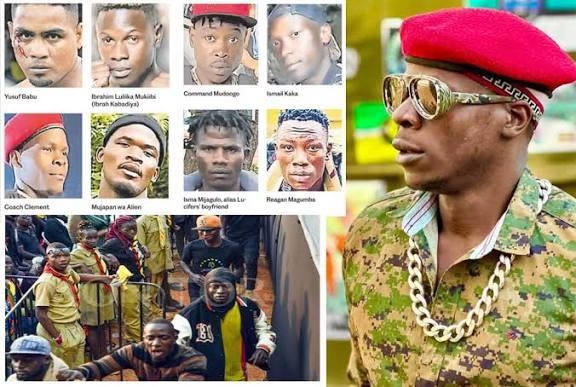On a quiet evening in September 2025, tragedy struck when Wilfred Namuwaya—known on the streets as “Top Dancer”—passed away on his way to the hospital. What happened before that night is a painful reminder of the harsh realities faced by many caught between the worlds of music and gang life in Kampala.
Police reports tell a grim story: Wilfred was taken from his home in Ndeeba by a group linked to the Fangone Forest gang—people known as Ibra Kabadiya, Mijagalo, and Commander Mudogo—acting on orders from their leader, a musician called Alien Skin. He was taken to the gang’s base and brutally beaten before being left in Mpomba zone. Despite efforts to get him to Mulago Hospital, he died from his injuries.
What makes this even more chilling is that Wilfred’s death is not the first time a member of this gang has died under similar circumstances. Previous reports have linked Alien Skin’s gang to violent assaults that have resulted in the deaths of other former members, raising serious questions about the brutal methods this group uses to maintain control and silence dissent.
In response to this case, police have issued arrest warrants for Alien Skin and several of his associates, including Commander Mudogo, Ibra Kabadiya, and Mijagnlo. Authorities are actively searching for them as investigations continue, signaling the seriousness of the charges they could face.
A video circulating on social media adds another layer to the story. In it, a man known as “Top Model” (believed to be Wilfred himself) speaks candidly about how, after deciding to leave the gang, he was called back by members saying Alien Skin needed to see him. He describes being confronted and disciplined by the gang’s leaders, including Commander Mudogo.
If true, this confession paints a chilling picture of how leaving such groups isn’t just a personal choice—it can be met with violent consequences.
Alien Skin, whose real name is Patrick Mulwana, has been a controversial figure in Kampala’s music scene for years. Known for his connection to the Fangone Forest gang, his name has been linked to multiple violent incidents, including clashes at hospitals and public feuds that have drawn police intervention.
This isn’t just a story about one man or one gang; it’s about the dangerous crossroads where music, youth culture, and violence meet in Uganda’s capital.
The implications of Wilfred’s death are significant. If the allegations against Alien Skin and his associates are proven, they could face serious criminal charges, from assault to murder. But beyond the courtroom, this case raises deeper questions: How did gangs become entwined with musicians? What does it say about safety and justice when fame can sometimes offer protection from consequences?
The public is watching closely. Many want to see justice done—not only for Wilfred but to send a message that violence and intimidation won’t be tolerated, regardless of who’s involved.
Yet, much remains unclear. Who exactly is behind the assault? How reliable is the confession video? What was the true cause of Wilfred’s death? And what kind of pressure do witnesses face in coming forward?
Answers to these questions are crucial—not just for this case, but for the broader fight against gang violence in Uganda.
Wilfred Namuwaya’s story is a tragic reminder of the costs paid by those caught between loyalty, fear, and the desire for a different life. As investigations continue, the hope is for transparency, accountability, and ultimately, justice.
If you want, I can help keep you updated on the latest developments, provide a timeline of events, or share more about the history of Fangone Forest and the complex ties between music and gangs in Kampala. Just let me know.



